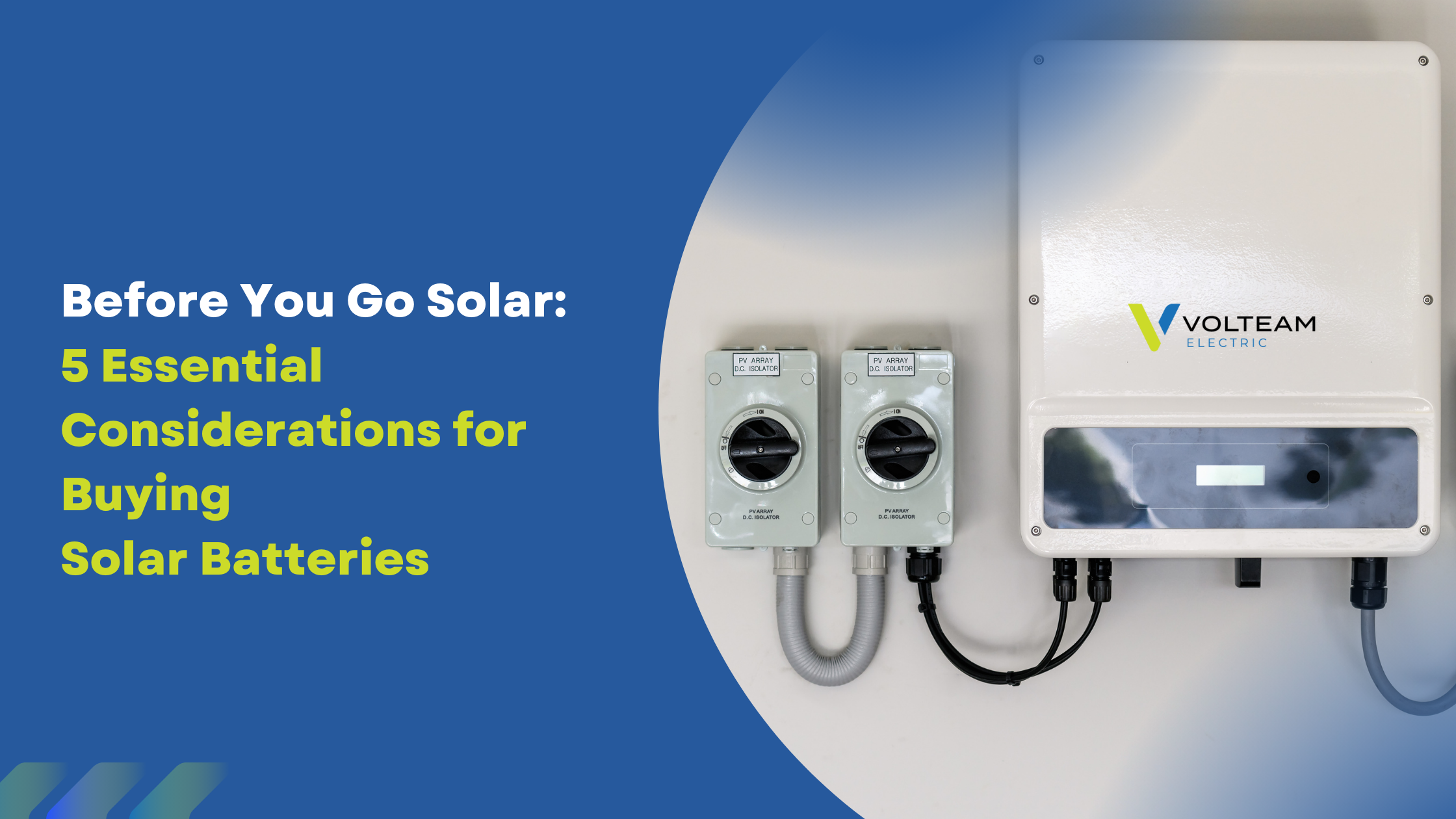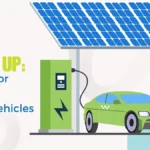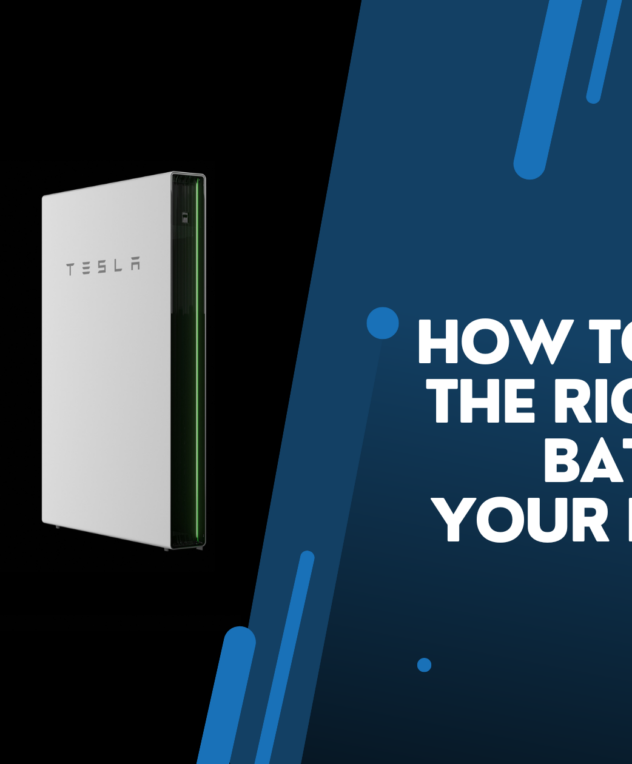
Before You Go Solar: 5 Essential Considerations for Buying Solar Batteries
If you’re new to the world of solar power, a solar battery stores excess energy generated by your solar panels. The stored energy then becomes potential energy for when the sun isn’t shining, such as during nighttime or gloomy and rainy days. Hence, it’s clear how owning a solar battery for your house can maximise the efficiency of your solar setup.
As more Australian households are now more keen than ever to save on their energy bills and reduce their reliance on the grid, the benefits of solar batteries have since been established. Nonetheless, making a decision still requires forethought and planning. To help you simplify the process, here are important things to consider when buying solar batteries for your facility or household.
1. Determine your energy consumption
Going over battery specifications to find the right match for your needs can be a laborious task. One way to uncomplicate matters is to identify your household’s energy consumption. Examine your day-to-day energy usage and pinpoint peak times.
By doing these, you have a clearer idea of your energy consumption, which then helps you calculate the amount of energy you need to store. Based on this information, you can choose a solar battery for a house with a fitting capacity.
Moreover, your solar panel system’s size will also determine the size of your solar battery. A huge system will have to be partnered with a bigger battery, while smaller systems can use smaller batteries. For example, a 5kW solar panel system complements a solar battery with a 10-13 kWh capacity.
2. Ensure your solar battery has sufficient capacity and power rating
Once it’s decided that investing in a solar battery is advantageous in the long run, it’s time to consider these two key specifications – capacity and power rating.
Measured in kilowatt-hours (kWh), capacity is the total amount of energy the battery can store. Naturally, you will need to choose a solar battery that meets your energy consumption requirements. If your household has higher energy needs, you’ll need a battery with a higher capacity.
Power rating, on the other hand, is the amount of energy the battery can deliver at once. Solar batteries with the appropriate power rating can handle your energy demands even during peak times, allowing your household to use multiple appliances simultaneously.
3. Consider lifespan and warranty coverage
Over time solar batteries will degrade, reducing their storage capacity. To ensure long-term usage, opt for batteries with a high cycle rating and an extensive warranty. Fortunately, many well-known manufacturers offer warranties that last for up to 15 years.
It’s only wise to invest in a solar battery for a house with a longer lifespan and better warranty coverage to get the most bang for your buck. Think of all those devices, appliances, and other forms of cutting-edge technology (like solar security cameras) you can keep using for a long time with a reliable solar battery as power backup.
4. Think seamless integration
Just like with any other technology, compatibility during integration is key. The solar house battery you will need to acquire must be designed to seamlessly integrate with your existing solar power system. This also allows you to efficiently monitor and manage your energy usage.
Even more convenient, reputable companies offer smart solar battery installation and solutions that can provide energy storage and consumption in real-time, so you have complete control over your energy usage.
5. Research financial incentives
The initial cost for a solar house battery can be significant, but don’t let this discourage you. Remember, having solar batteries can save you money in the long run. A solar battery can reduce the amount of power you take from the grid, hence, lowering your electricity bills and establishing your energy independence.
To reduce the burden of shelling out a huge amount of money, there are government programs that offer incentives, rebates, and tax credits to lower the cost of your solar battery system. It’s important to research what financial incentives and subsidies are available in your area. This way, you’ll know what programs to take advantage of, so having your own solar battery system becomes somewhat affordable.
Your guide to finding the best solar battery for your house
Finding the best solar battery for your house involves research and exploration of the best options in order to make an informed decision. If you need guidance and recommendations, we’re here to assist you every step of the way. Your journey to sustainable energy can be as hassle-free and seamless as possible, especially with top solar batteries like Tesla’s Powerwall 3, BYD, LG, and Sungrow serving as solid options.
about the author

Marcin Hernik
Marcin Hernik is the Managing Director at Volteam Electric Pty Ltd, leveraging his expertise honed from TAFE Queensland's Electrical and Electronics Engineering, following his graduation from the University of Technology and Humanities in Radom. His career is marked by a commitment to excellence in electrical engineering and leadership in the industry.








